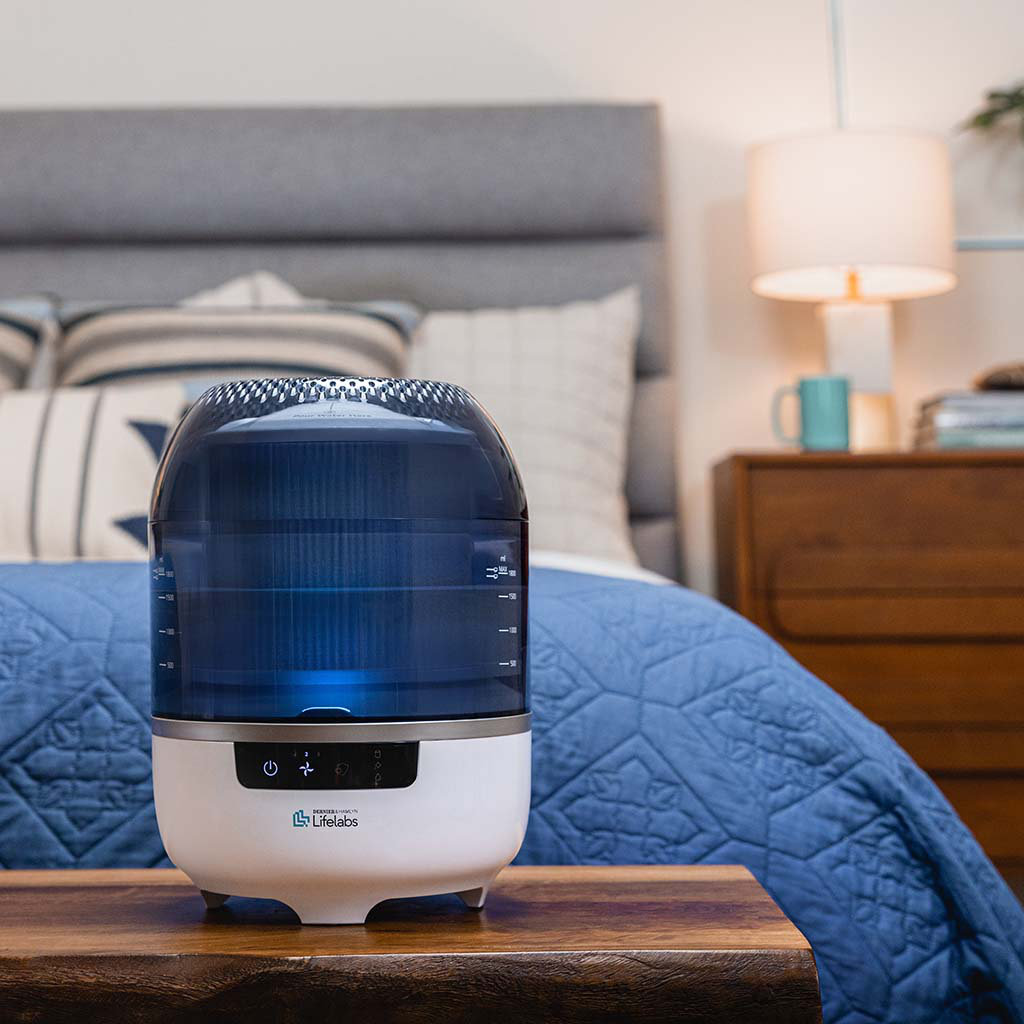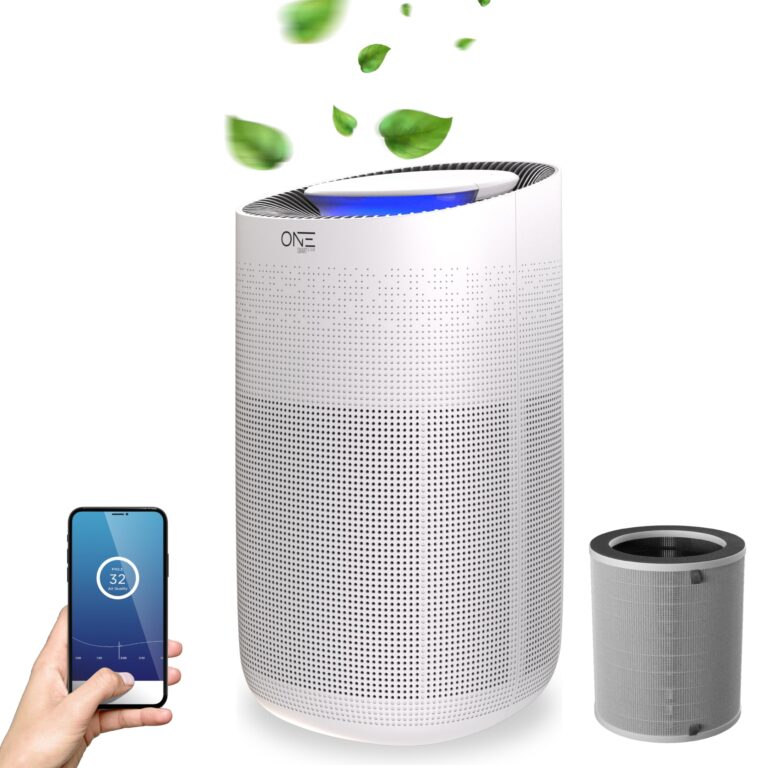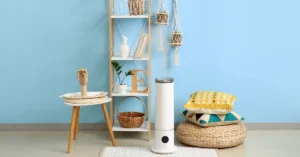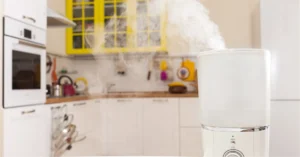Yes, air ionizers can kill viruses by generating negatively charged ions that attach to airborne particles and neutralize them, including viruses. Whether you are concerned about the quality of the air you breathe at home, in the office, or in public spaces, the issue of viruses and their potential harm has become increasingly significant.
With the COVID-19 pandemic, people are searching for effective ways to reduce the risk of virus transmission. One of the options to consider is an air ionizer. These devices generate negative ions that, when released into the air, attach to harmful particles, such as viruses, bacteria, and allergens.
This process effectively neutralizes the particles, making the air cleaner and safer to breathe. We will explore the effectiveness of air ionizers in killing viruses and discuss their potential benefits and drawbacks.
The Power Of Air Ionizers In Virus Elimination
The power of air ionizers in virus elimination is becoming increasingly recognized. Air ionizers work by emitting negative ions into the air, which attach to positively charged particles such as viruses, bacteria, and allergens. These negative ions create an electrostatic charge that causes these particles to become too heavy to remain airborne. As a result, they either fall to the ground or are trapped by filters in the ionizer.
Air ionizers not only remove viruses from the air, but they also neutralize them. Negative ions can interact with the protein structure of viruses, disrupting their protective coating and rendering them ineffective. This can help to prevent the spread of viruses and minimize the risk of infection.
It is important to note that air ionizers should not be solely relied upon as a standalone solution for virus elimination. They can be used as an effective complement to other preventive measures such as regular cleaning, good ventilation, and practicing good hygiene.
Overall, air ionizers have shown promising results in killing and eliminating viruses. As more research is conducted in this area, the benefits of using air ionizers in virus control and prevention are becoming clearer.

Credit: www.wayfair.com
Benefits Of Air Ionizers In Virus Protection
An air ionizer is a device that releases negative ions into the air. These negative ions attach to positively charged particles, such as dust, pollen, and viruses, making them fall to the ground and out of the air we breathe. One of the benefits of air ionizers is their ability to improve indoor air quality. By removing airborne particles, including viruses, air ionizers can reduce the risk of virus transmission in enclosed spaces.
Besides virus protection, air ionizers also have several other advantages. They can help enhance overall health and well-being by removing allergens and pollutants from the air. This can be especially beneficial for individuals with respiratory conditions, such as asthma or allergies. Additionally, air ionizers can help eliminate odors and create a fresher indoor environment.
In conclusion, investing in an air ionizer can provide multiple benefits, including improving indoor air quality and reducing the risk of virus transmission. By creating a healthier living environment, air ionizers contribute to overall well-being and improved respiratory health.
Factors To Consider When Choosing An Air Ionizer
Factors to Consider When Choosing an Air Ionizer:
- Effectiveness in Killing Viruses: When choosing an air ionizer, one of the crucial factors to consider is its effectiveness in killing viruses. Look for ionizers equipped with advanced filtration technology that can effectively neutralize and eliminate viruses in the air, including bacteria and other harmful microorganisms.
- Coverage Area and Capacity: Another important aspect to consider is the coverage area and capacity of the air ionizer. Ensure that it has the ability to purify the air in the desired space, whether it is a small room or a larger area. This will ensure that the ionizer can adequately clean the air in your environment.
- Energy Efficiency and Maintenance Requirements: Energy efficiency is an essential consideration when choosing any electronic device, including an air ionizer. Look for an ionizer that is Energy Star rated to ensure optimal performance without consuming excessive electricity. In addition, consider the maintenance requirements of the ionizer, such as filter replacements and cleaning, to maintain its efficiency over time.
Additional Features And Technologies In Air Ionizers For Virus Protection
Additional Features and Technologies in Air Ionizers for Virus Protection:
- HEPA Filtration Systems: Air ionizers equipped with HEPA filtration systems are effective at trapping and removing tiny particles, including viruses, from the air. The high-quality HEPA filters can capture particles as small as 0.3 microns, ensuring cleaner and healthier air.
- UV-C Light Technology: Some air ionizers incorporate UV-C light technology, which can help inactivate viruses and other harmful microorganisms. UV-C light is known for its germicidal properties and can effectively destroy the DNA and RNA of viruses, rendering them unable to replicate or cause infections.
- Ozone Generation: Certain air ionizers produce ozone as part of their purification process. Ozone has been found to have disinfecting properties and can neutralize viruses, bacteria, and other airborne pathogens. However, it’s important to note that ozone can be harmful to human health in high concentrations, so proper usage and ventilation are crucial.
Comparison Of Air Ionizers With Other Air Purification Methods
When it comes to air purification methods, there are several options available in the market. Air ionizers, HEPA filters, UV-C light technology, and ozone generators are some popular choices. Each method has its advantages and disadvantages, and it is important to understand the differences between them.
| Air Ionizers | HEPA Filters | |
|---|---|---|
| Functionality | Air ionizers release negative ions into the air to attract and neutralize pollutants, including viruses. | HEPA filters use a fine mesh to trap airborne particles, including viruses. |
| Effectiveness | Air ionizers can effectively remove particles and odors but may not be as effective in removing larger particles as HEPA filters. | HEPA filters are highly effective in removing particles, including viruses, but cannot neutralize odors. |
UV-C light technology, on the other hand, uses ultraviolet light to kill viruses and bacteria present in the air. However, it may not be as effective in removing larger particles or odors. Ozone generators release ozone, which can neutralize odors but may have potential health risks if used improperly.
Overall, the choice of air purification method depends on your specific needs and preferences. Consider factors such as effectiveness, functionality, and safety before making a decision.
Common Misconceptions And Myths About Air Ionizers And Virus Elimination
Common misconceptions and myths about air ionizers and virus elimination often lead to confusion and misinformation. One such misconception is that air ionizers worsen respiratory conditions. However, scientific studies have shown that air ionizers can actually help improve air quality by removing allergens and pollutants.
Another myth is that air ionizers produce harmful ozone levels. While it is true that some air ionizers emit trace amounts of ozone, it is important to note that these levels are well below the safety standards set by regulatory bodies. In fact, many air purifiers on the market today come with built-in ozone monitors to ensure ozone levels remain within acceptable limits.
It is also important to understand that air ionizers cannot eliminate all types of viruses. While they may help in reducing airborne particles, including some types of viruses, they are not a foolproof solution for virus elimination. Complementary measures, such as regular handwashing, wearing masks, and maintaining good hygiene practices, should also be followed to minimize the risk of contracting viruses.
Best Practices In Using Air Ionizers For Virus Protection
Placement And Installation Guidelines
When setting up an air ionizer, it is important to consider the optimal placement and installation. Locate the unit in a central area, away from any obstructions that could hinder airflow. Ensuring proper ventilation will allow for effective distribution of ions throughout the space.
Regular Maintenance And Cleaning
Regular maintenance and cleaning are crucial to keep an air ionizer performing at its best. Clean the unit’s plates or filters to remove any accumulated particles, dust, or allergens. This will help prevent any buildup that could reduce the effectiveness of ionization.
Recommended Usage Time And Frequency
For optimal results, it is recommended to run the air ionizer continuously or for extended periods, especially in high traffic areas or during flu seasons. However, it is essential to follow the manufacturer’s guidelines regarding recommended usage time and frequency, as operating an ionizer for too long may not yield additional benefits.
Frequently Asked Questions Of Does Air Ionizer Kill Viruses
Do Air Ionizers Help With Covid?
Air ionizers may help with COVID as they emit negative ions that can bind to and neutralize harmful particles like viruses. However, they should not be relied upon as the sole preventive measure and must be used in conjunction with other recommended precautions such as wearing masks, social distancing, and proper ventilation.
Is It Safe To Be In A Room With An Ionizer?
Yes, it is safe to be in a room with an ionizer.
Is It Healthy To Breathe Ionized Air?
Breathing ionized air can be healthy as it helps to purify and clean the surrounding air, reducing pollutants and allergens that can harm your health. Ionizers release negative ions, which may have positive effects on your mood and overall well-being.
What Are The Side Effects Of Ionized Air Purifiers?
Ionized air purifiers may have potential side effects including ozone generation, which can cause respiratory issues, eye irritation, and lung damage. Excessive negative ions may also lead to headaches and dizziness. It’s important to choose an air purifier with low ozone emissions and use it in a well-ventilated area.
Conclusion
Air ionizers have gained popularity for their alleged ability to kill viruses and improve indoor air quality. While research on this topic is limited, some studies suggest that air ionizers may help reduce the presence of viruses in the air.
However, it is important to note that air ionizers should not be solely relied upon as a primary defense against airborne viruses. As with any air purification system, it is crucial to follow recommended guidelines for maintaining a healthy environment.
Ultimately, the effectiveness of air ionizers in killing viruses may vary depending on various factors.




